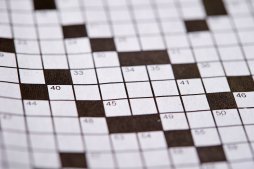Decoding Riddles: A Historical Perspective on Puzzles Through the Ages

Riddles have captivated minds for centuries, weaving their way through cultures and epochs. From the enigmatic Sphinx of ancient Greece to the astute deductions of Sherlock Holmes in Victorian London, riddles represent not just a test of wit but also a reflection of human curiosity and intellect. In this article, we will explore the fascinating history of riddles, tracing their evolution and significance across time.
The Origins of Riddles: Ancient Civilizations
Riddles can be traced back to ancient civilizations such as Mesopotamia and Egypt. The Sphinx, famously known for posing a riddle to travelers approaching Thebes, is one of the earliest examples. The riddle ‘What walks on four legs in the morning, two legs at noon, and three legs in the evening?’ symbolizes life’s stages and our journey through time. This not only showcased linguistic creativity but also served as a philosophical inquiry into existence.
Riddles in Ancient Literature
As societies evolved, so did their literature. The Bible features riddles—Judges 14 recounts Samson’s riddle at his wedding feast. Ancient Greek playwrights like Sophocles incorporated riddling elements into their works to engage audiences intellectually while exploring deeper themes such as fate and morality. These literary riddles highlighted their cultural significance during that era.
The Role of Riddles in Medieval Europe
During medieval times, riddling became popular across Europe as part of oral traditions and folklore. They were used in games at feasts or festivals to entertain guests while also imparting moral lessons or social commentary. Notably, collections like ‘The Exeter Book’ from Anglo-Saxon England included numerous riddles that prompted both laughter and thought among listeners—showcasing how humor intertwined with wisdom.
Riddles during the Renaissance: A New Era
The Renaissance sparked renewed interest in arts and literature, leading to inventive approaches towards riddling. Poets like John Milton incorporated complex wordplay into their texts; Shakespeare’s works often teased audiences with clever quips that functioned as modern-day riddles within dialogues. These shifts reflected broader changes in intellectual pursuits during this vibrant period.
Sherlock Holmes: Riddling Renaissance Man
As we move into the late 19th century, Arthur Conan Doyle’s Sherlock Holmes emerged as an iconic figure representing intelligence combined with deduction through puzzles—many akin to elaborate riddles themselves. Holmes solved mysteries using logic rather than mere brute force; his adventures underscored how analytical thinking could decipher even the most cryptic clues presented by humanity’s darker elements.
From ancient sphinxes posing existential questions to modern detectives unraveling intricate plots through clever reasoning, the journey of riddles reveals much about human nature—the quest for knowledge wrapped within layers of mystery. As you ponder over your next brain teaser or enjoy sharing one with friends around a campfire or cafe table remember: every riddle has its own story waiting to be uncovered.
This text was generated using a large language model, and select text has been reviewed and moderated for purposes such as readability.


